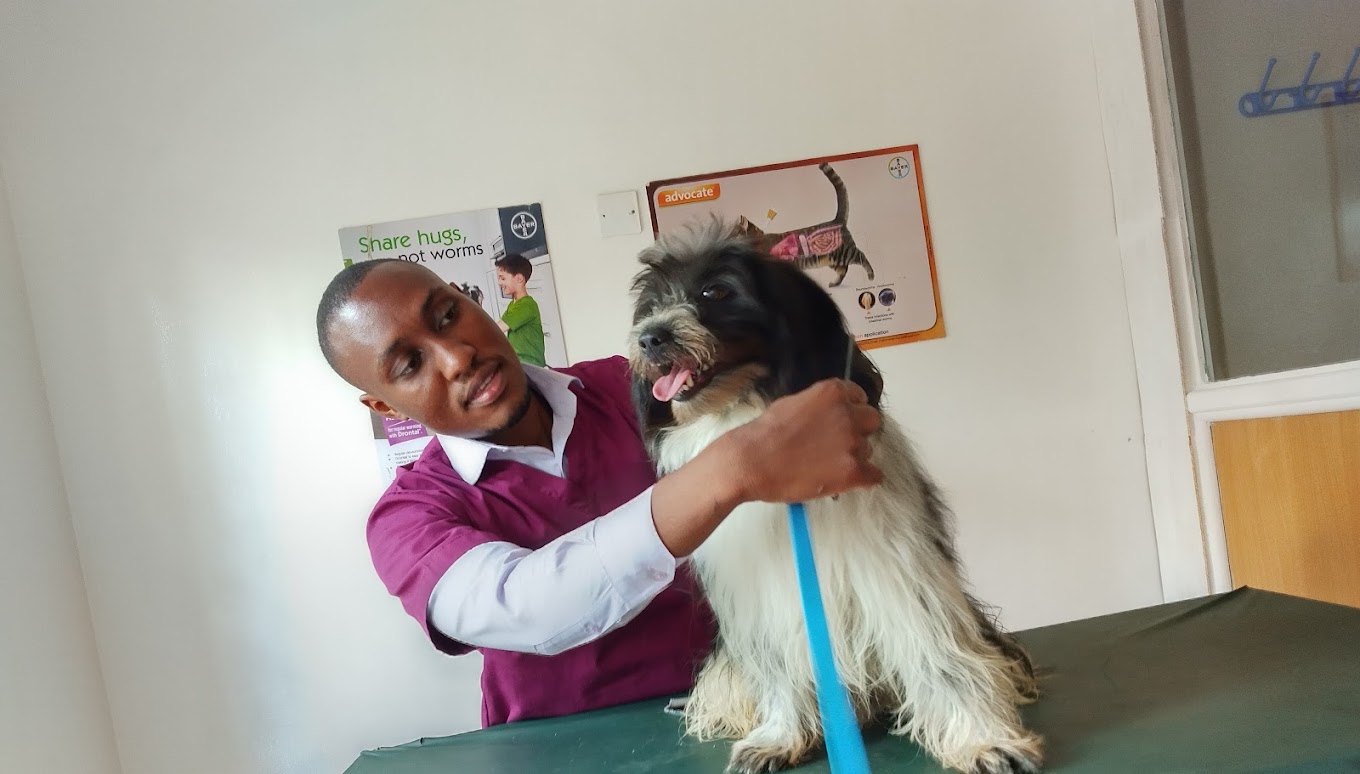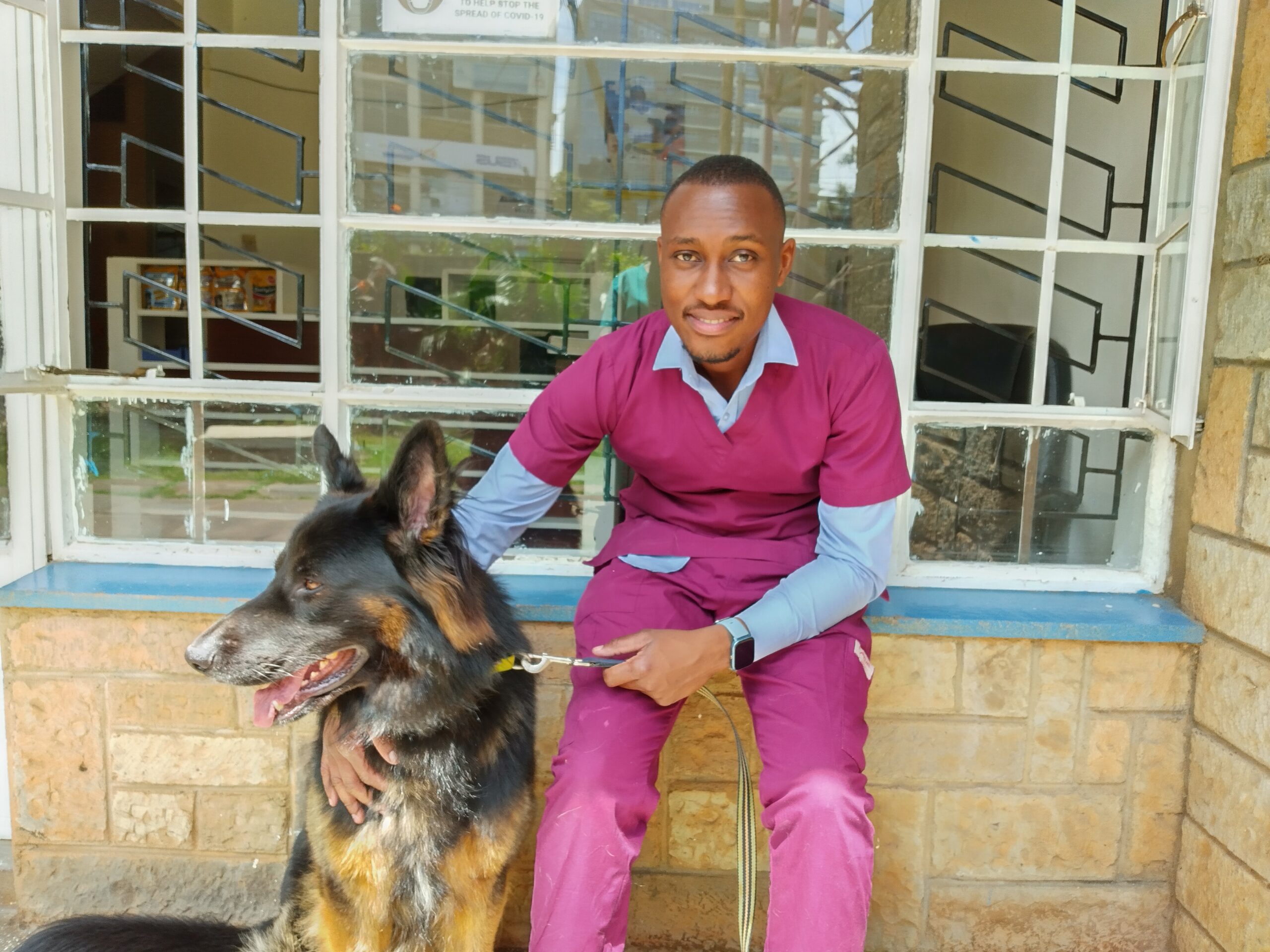Dog vaccination is crucial for preventing various infectious diseases that can affect dogs in Nairobi. Vaccinations help stimulate the immune system to recognize and fight specific pathogens, providing immunity and protection against certain illnesses. Here’s an overview of the importance and the general procedure of dog vaccination:
Importance of Dog Vaccination:
- Disease Prevention: Vaccinations in Nairobi are designed to prevent or reduce the severity of specific diseases that can be life-threatening or cause severe health issues in dogs.
- Public Health: Some dog diseases, such as rabies, can be transmitted to humans. Vaccinating dogs helps protect not only the animals themselves but also human populations.
- Long-Term Cost Savings: Preventing diseases through vaccinations is often more cost-effective than treating the illnesses. Veterinary care and medications for sick dogs can be expensive.
- Community Immunity: High vaccination rates within a community contribute to herd immunity. This means that even unvaccinated or susceptible individuals are protected because the overall prevalence of the disease is reduced.
Procedure of Dog Vaccination:
- Veterinary Consultation: Before administering vaccinations, it’s essential to consult with a veterinarian. The vet will assess the dog’s health, lifestyle, and potential exposure to diseases to determine the appropriate vaccination schedule.
- Core and Non-Core Vaccines: Core vaccines are recommended for all dogs due to the widespread prevalence and severity of the diseases they protect against. Non-core vaccines are recommended based on a dog’s specific risk factors.
- Puppy Vaccination Series: Puppies typically receive a series of vaccinations, starting at around 6 to 8 weeks of age and continuing every few weeks until they are about 16 weeks old. This series helps build immunity as maternal antibodies wane.
- Booster Shots: After the initial puppy series, dogs need regular booster vaccinations to maintain immunity. The frequency of boosters depends on the vaccine type and the dog’s risk factors.
- Common Core Vaccines:
- Distemper: A highly contagious viral disease affecting the respiratory, gastrointestinal, and nervous systems.
- Parvovirus: Causes severe gastrointestinal symptoms and can be fatal, especially in puppies.
- Adenovirus (Hepatitis): Affects the liver and other organs.
- Rabies: A fatal viral disease that can be transmitted to humans. Rabies vaccinations are often required by law.
- Optional Non-Core Vaccines:
- Bordetella (Kennel Cough): Recommended for dogs in close contact with others, such as those in boarding facilities.
- Lyme Disease: Recommended for dogs in regions where Lyme disease is prevalent.
- Canine Influenza: Recommended for dogs with a higher risk of exposure, such as those in close contact with other dogs.
- Record Keeping: Keep a vaccination record for your dog, including dates of vaccinations and the types of vaccines administered. This information is useful for future veterinary visits and may be required for travel or boarding.
Remember that vaccination needs may vary based on factors such as location, we serve areas of Lavington, Kileleshwa, Runda, Ruaka, Rossyln, Kilimani, Westlands, Loresho, lifestyle, and the individual health of the dog. Always consult with a veterinarian to create a vaccination plan tailored to your dog’s specific needs. Regular veterinary check-ups are essential for maintaining a dog’s overall health and well-being.







